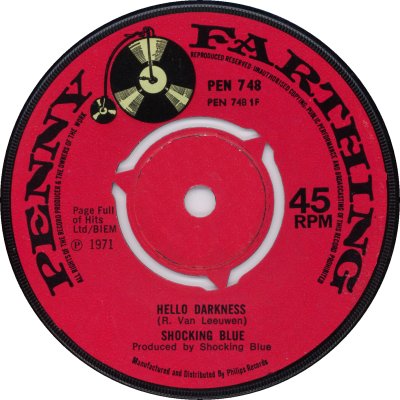
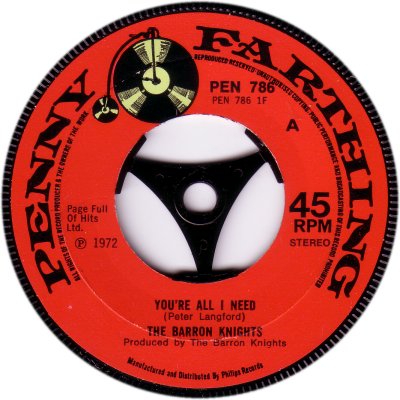
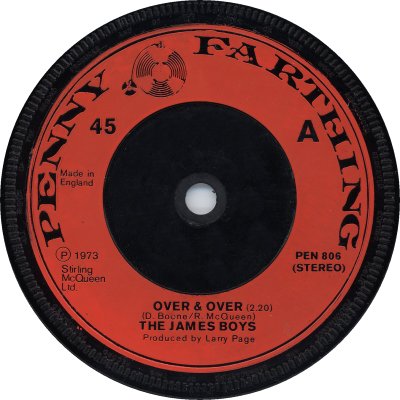
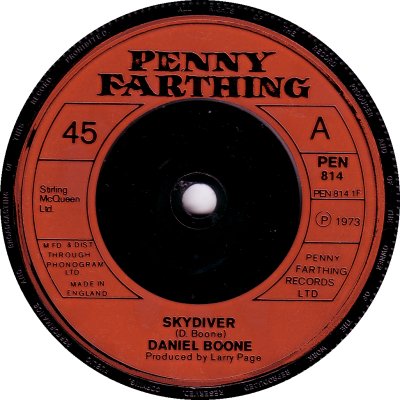
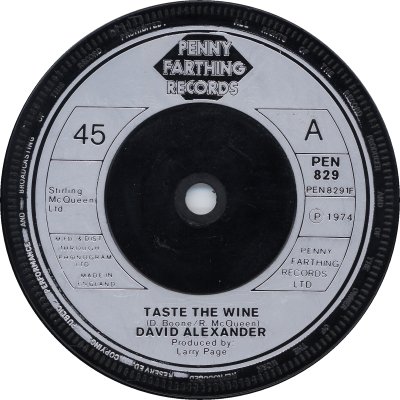
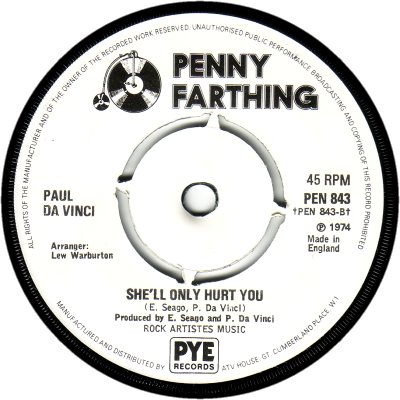
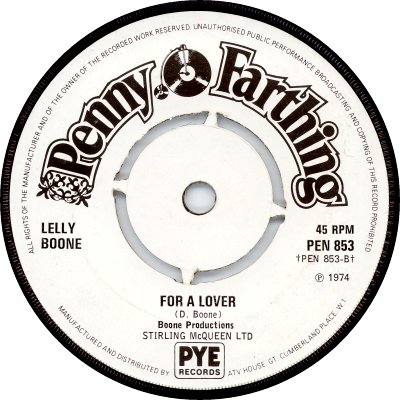
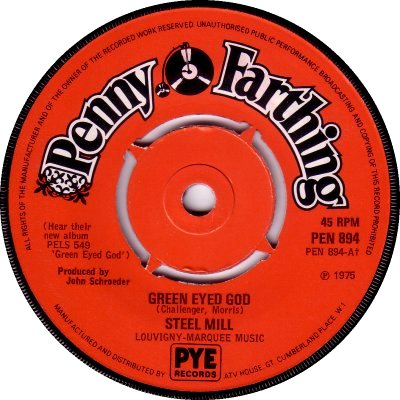
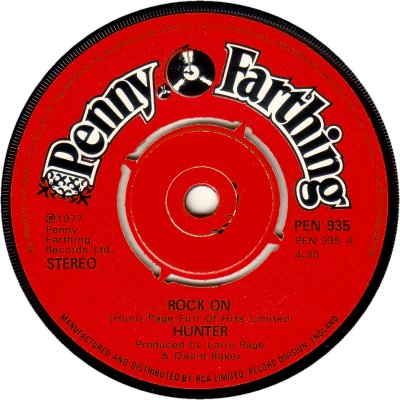
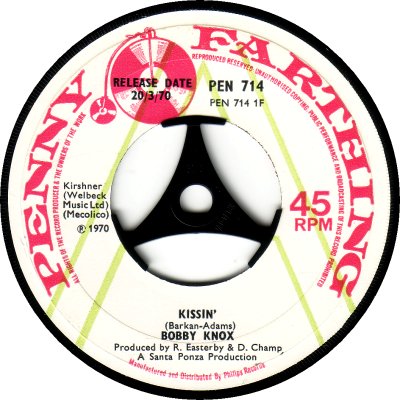
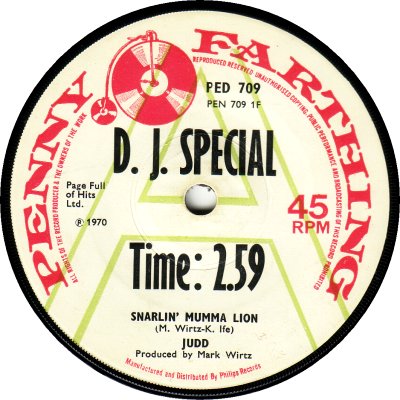
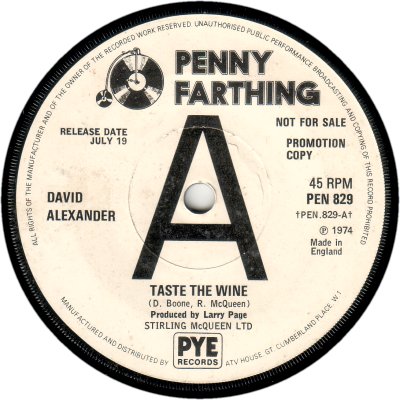
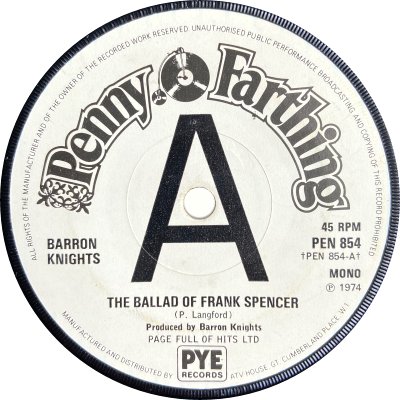
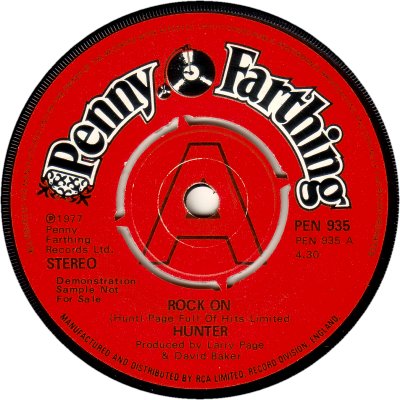
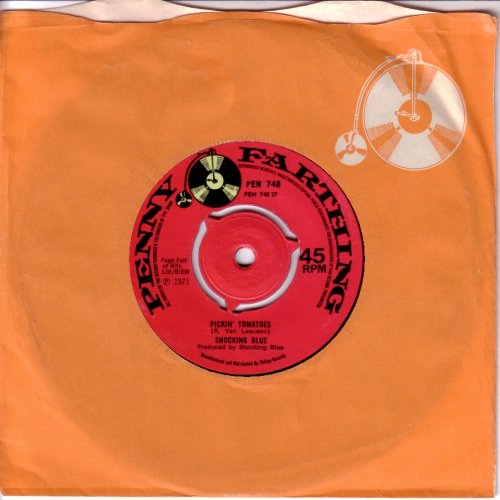
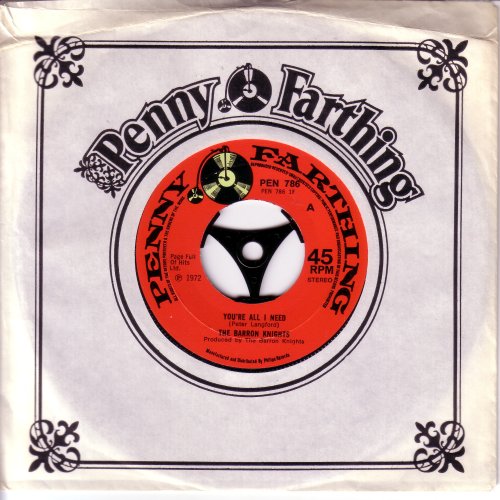
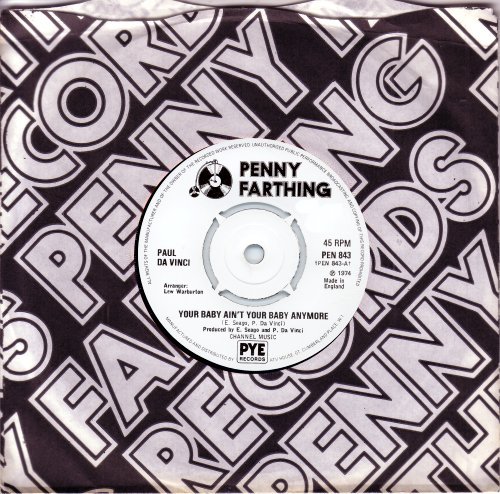
Penny Farthing was started by Larry Page in August 1969 after he sold his 50% share in Page One records to co-owner Dick James; it went on to be the main label of his Page International stable. News that Page was planning a new label was broken by 'Record Retailer' of the 16th of July 1969, though at that point the Penny Farthing name was only described as 'possible'. A few weeks later 'RR' (23rd August) was able to confirm the name and to say that a pressing and distribution deal had been signed with Philips. Early success came in the shape of the company's second single, 'Venus' by Shocking Blue (PEN-702; 10/69), which got into the Top 10, but the band's follow-up, 'Mighty Joe' (PEN-713; 3/70), didn't make the Top 40. More than a year was to pass before Penny Farthing enjoyed another hit, but eventually Daniel Boone's 'Daddy, Don't You Walk So Fast (PEN-764; 7/71) did the trick; he followed it with 'Beautiful Sunday' (PEN-781; 2/72), which just failed to crack the Top 20. 'Record Retailer' of the 13th of November 1971 reported that the theme tune to the TV series 'Owen M.D.', 'Sleepy Shores' by Johnny Pearson, had been licensed from KPM 'Because of interest'; sure enough, it provided the company with another Top 10 single, and proved a steady seller (PEN-778; 11/71).
The Top 5 success of 'Blue Is The Colour' by the Chelsea Football Team (PEN-782; 2/72) seems to have been behind Penny Farthing's decision to launch a 'Trophy Series' of sports records ('Music Week', 5th August 1972); it ran to two singles and two albums, and its labels had the words 'TROPHY SERIES' towards the top - I've given it its own page; see 'Penny Farthing Trophy Series'. 'MW' of the 15th of September 1973 carried the news that Penny Farthing had signed a distribution deal with Phonogram; presumably this was an extension of its original deal with Philips. If that was the case the extension was a short one, for in March of the following year the company signed what was reported to be a licensing deal with Pye ('MW', 13th March 1974). The occasional single continued to hit the charts - Paul Da Vinci, Rainbow Cottage and Billy Howard all registered - but in October 1976 Penny Farthing moved again, this time to RCA. According to 'MW' of the 16th of October the deal was the first licensing deal that Larry Page had done, which contradicts what it said about the Pye deal in 1974.
The relationship with RCA ran into problems, and after Billy Howard's 'Frantic Frog' (PEN-942), in June 1977, releases ground to a halt. 'MW' of the 4th of February 1978 broke the news that the company was threatening to take put a winding-up petition against RCA, alleging the failure of payment for product delivered at the start of the second year of its three-year contract; RCA was contesting, on the grounds that the product was back-catalogue which should have been delivered at the start of the contract. The following week's 'MW' (11th February) reported that the judge in the case had come down heavily on the side of RCA and had awarded them costs. Three months later the differences between the two companies had been 'resolved', according to 'MW' of the 27th of May; the 18-month-old distribution agreement had been terminated, and out-of-court negotiations were going on. There were to be no more Penny Farthing records in the UK, although the occasional release continued to appear abroad until 1980 - the company had had a respectable presence in Australia, New Zealand, Canada and verious European countries. In March the following year Page launched a new label, 'Rampage' (q.v.), which featured several of the old Penny Farthing artists.
Penny Farthing's catalogue offered a fair amount of variety: much of it was Pop, sometimes of the MOR kind, sometimes with a distinct Glam flavour, but there were a couple of Rock LPs by Octopus (not the German Prog band) and Steel Mill, which command high prices nowadays, and in its later years it had a crack at the Disco market. Manufacturing and distribution were initially by Philips / Phonodisc, which accounts for the three-pronged push-out centre (1), the factory-dinked issues (2), and, in the summer of 1973, the appearance of the dull injection-moulded labels. The latter came in three different types. The cycle logo seems to have been retained for only one injection-moulded issue, a re-pressing of the Top 40 hit 'Over And Over' by The James Boys (PEN-806; 4/73) (3). From PEN-811 the injection-moulded labels were red with the label name in two lines (4); this design was replaced briefly by a silver hexagon shape (5) which lasted for just three issues, PEN-828, 829 and 830. The cycle logo reappered, along with paper labels, when Pye took over manufacture and distribution, which it did with PEN-831 in March 1974. Initial Pye releases had a white label with the logo and the name in a block at the top (6), but from PEN-853 onwards the name and logo appeared in the shape of an arch, as they had done in the company's earlier years (7) - PEN-839 also had this kind of label; its release appears to have been delayed. The white label turned red (8) with PEN-876, in May 1975. When Penny Farthing moved to RCA the label design remained much the same but there were differences in typeface, and the Pye logo at the bottom of the label was replaced by a reference to RCA (9).
With regard to promos, the first single had a large hollow 'A' overprinted on issue labels, but after that dedicated white labels with a large lime-green hollow 'A' were used (10, 11). These special labels were dropped at the start of 1971, and were replaced by stickers with 'NOT FOR RESALE' and the release date on them. Pye-era promos had a large black 'A' on them, after the usual Pye family style (12, 13 - thanks to John Timmis for that scan). After the move to RCA this 'A' was replaced by a smaller hollow one in the usual RCA manner (14). The PEN-700 catalogue number series remained unchanged throughout, although it had evolved into the PEN-900s by the end. Three different company sleeves were used, with the orange type (15) being the earliest. The bolder of the black and white sleeves (16) came into use at the beginning of the Pye era; its use seems to have been continued into the RCA period. Other members of the Page International group of labels were Page International itself and Nepentha (q.v. both).



Copyright 2006 Robert Lyons.

